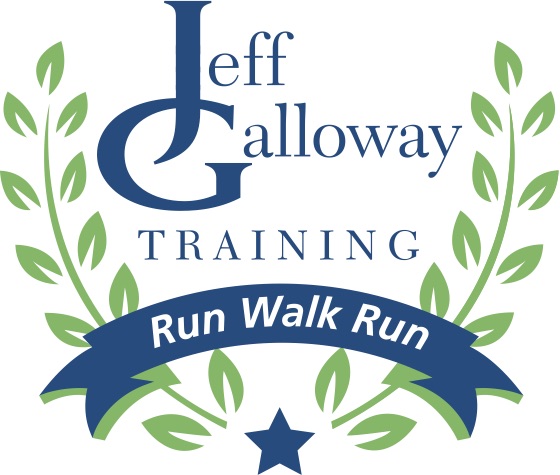Recent Posts and Updates from Jeff
How to maintain the endurance gained on the long run.
A half hour run on Tuesday and Thursday will maintain the endurance gained on the weekend. This is the minimum and results in the lowest injury rate. If you are already running more than this, without aches and pains, you can continue if you wish. As you will see in...
How Many Days Per Week?
Almost every long distance runner, including most of those training for the Olympic Trials could benefit from more days off running per week. Age will ultimately dictate how many more days off you will need. If you experience lingering fatigue, aches or pains: Those...
How to Run Better as You Get Older
Take control of your training by inserting rest before it is needed When doing a challenging workout, stay below the threshold of irritation of weak links Use walk breaks, earlier and more often as the years go on Replace shoes before they are worn out - alternate 2-3...
Journal Tip: Your Morning Pulse is a Great Guide of Overstress
Recording morning pulse - immediately upon waking As soon as you are conscious, but before you have thought much about anything count your pulse rate for a minute. Record it before you forget it. If you don’t have your journal by your bed, then keep a piece of paper...
Short Uphill Stride Helped Me Run My Fastest Marathon…at Age 35
The 1980 Houston-Tenneco course had several significant rolling sections, and this worried me. I had strained my hamstring eight weeks before the race and had to lay off from fast running. As the time closed in on the marathon date, I discovered that the only speed...
Sweat the Electrolytes
Electrolytes are the salts that your body loses when you sweat: sodium, potassium, magnesium and calcium. When these minerals get too low, your fluid transfer system doesn’t work as well and you may experience ineffective cooling, swelling of the hands and other...
Marathon FAQ
Question: What is the principle behind the run-walk-run method? Answer: This is a form of interval training and is directly tied to the conservation of resources: muscle, feet, joints, energy, fluids, etc. The continuous use of the running muscles will produce fatigue...
Reasons Why You May Not Be Improving
You’re overtrained, and tired - if so, reduce your training, and/or take an extra rest day. You may have chosen a goal that it too ambitions for your current ability. You may have missed some of your workouts, or not been as regular with your training. The temperature...
I’m excited to be working with Garmin!
I’m honored to be working with Garmin to help people improve their running and fitness—and enjoy running more! I will be one of three coaches available on Garmin Coach - free training plans to help beginner to intermediate runners reach their 5K goal while adapting to...
What Happens to Us as We Train?
The “Team” of heart, lungs, nerves, brain, etc. Very often in professional sports, a group of very talented individuals is defeated by a group of players of lesser ability who play as a “team”. Each of the training elements in a 5K/10K schedule will help you to...
Alcohol in Sport: How Bad Is It for Runners?
Alcohol has a strong link with sport, be it with sponsorship, beer consumption after a hard workout, or teams enmeshed in a culture of heavy drinking. To address what is known—and not known—about the impact of alcohol on athletic performance, members of Professionals...
Reason to Run #45: Stressed? Get Out and Run!
On the really stressful days, when we don’t feel like running, even a short and gentle run can deliver major relief. Running doesn’t just release stress, it can bestow a relaxed sense of confidence that allows one to meet the challenges that cause the stress. A short...
Memories of the first Peachtree Road Race
In my Phidippides store in Ansley Mall you’ll see the first place trophy that I won in the 1st Peachtree Road Race in 1970. It was very unusual to have such a big trophy in a 10K road race and many ask me who was the sponsor. Here is the story. My friend Tim...
Recovery, Recovery, Recovery
The main theme of a time-goal program is recovery. If you build enough rest into your program before you need it, your body will be continuously recovering, rebuilding, and adapting for the performance demands of your goal. By preventing extra fatigue and taking extra...
Making Adjustments:
One of my favorite roles is helping runners solve problems. Almost every day I hear from at least one person who has experienced a rebirth of their running joy due to the Run-Walk-Run method. But I also work with runners who get stuck in a rut. Most commonly, a simple...
You Can’t Run Too Slow on Your Long Runs!
Question: How fast should I run during my long runs? Answer: I recommend pacing all of the long runs, at least two minutes per mile slower than predicted by the magic mile, adjusted for heat. I’ve not found any pace that is too slow. You’ll receive the endurance based...
The Endurance Diet: What to Avoid
Avoid the following: Salt - Salt consumed during the 24 hours before the race will produce blood more concentrated in sodium. Fluid is then taken from muscle tissue and other areas, reducing your capacity for performance through dehydration. Fat - The more fat in your...
A revolution in running shoe buying
Combining the convenience of online shopping with their 45 years of expertise in shoe fitting, Phidippides is changing how online running shoe shopping works. Worried that you'll order the wrong shoes online or that your local store doesn't have consistently...
